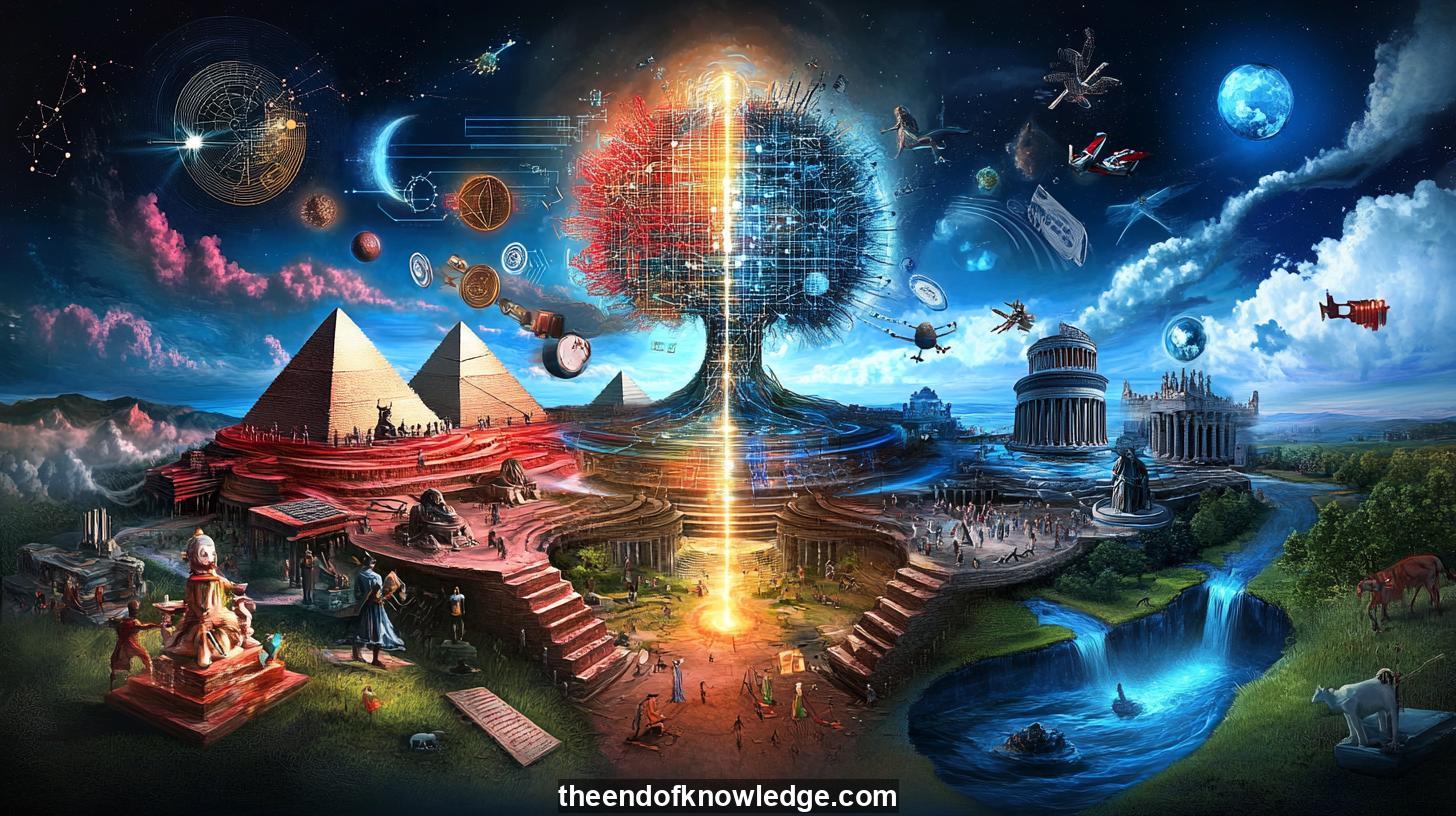 >
>
Concept Graph, Resume & KeyIdeas using DeepSeek R1 :
Resume:
30 Key Ideas:
1.- Blockchain technology has the potential to decentralize power and democratize resources, similar to historical examples like Mesopotamia and Egypt.
2.- Decentralized systems can create transparent and equitable economies, reducing reliance on intermediaries.
3.- The metaverse and virtual reality technologies offer immersive experiences but raise ethical concerns about control and manipulation.
4.- Artificial intelligence and machine learning can enhance creativity but also pose challenges regarding authorship and human empathy.
5.- Historical examples show that centralized systems often lead to societal collapse, highlighting the need for decentralized alternatives.
6.- Blockchain can enable secure and transparent systems for various applications, including healthcare, education, and finance.
7.- The ethical implications of emerging technologies require careful consideration to ensure they serve humanity's best interests.
8.- Education and critical thinking are crucial for navigating technological advancements and fostering a humanistic approach.
9.- Empathy and compassion are essential for maintaining human connections in a technology-driven world.
10.- Decentralized finance (DeFi) offers alternatives to traditional financial systems but must address issues like privacy and accessibility.
11.- The integration of blockchain and AI can revolutionize industries but must be done responsibly to avoid ethical dilemmas.
12.- Historical parallels highlight the importance of learning from past technological and societal advancements.
13.- The metaverse raises questions about identity, ownership, and the future of human interaction in virtual spaces.
14.- Blockchain can enhance transparency in governance and public administration, reducing corruption and increasing trust.
15.- emphasizes the need for collective action to ensure technological progress benefits all of society.
16.- Decentralized systems promote collaboration and reduce polarization by enabling direct participation.
17.- The ethical use of technology requires balancing innovation with considerations of privacy, security, and human rights.
18.- Blockchain and decentralized technologies can empower individuals by giving them control over their data and identities.
19.- The future of technology must prioritize human well-being, ensuring that advancements are accessible and equitable.
20.- concludes by urging a shift towards decentralized, human-centric systems to build a more just and transparent world.
21.- The importance of empathy and compassion in technological development cannot be overlooked.
22.- Blockchain can facilitate secure and efficient solutions for global challenges like climate change and healthcare.
23.- The metaverse and virtual reality technologies offer opportunities for education and creativity but must be carefully regulated.
24.- Artificial intelligence and machine learning can enhance decision-making but must be designed with ethical considerations.
25.- highlights the need for ongoing dialogue and debate to navigate the complexities of emerging technologies.
26.- Decentralized systems can reduce inequality by providing equal access to resources and opportunities.
27.- The integration of blockchain and AI can create more resilient and adaptive systems for various industries.
28.- The ethical implications of technology require a multidisciplinary approach, involving experts from various fields.
29.- emphasizes the importance of transparency and accountability in the development and deployment of technology.
30.- The future of technology must be shaped by a commitment to human values and the well-being of all people.
Interviews by Plácido Doménech Espí & Guests - Knowledge Vault built byDavid Vivancos 2025